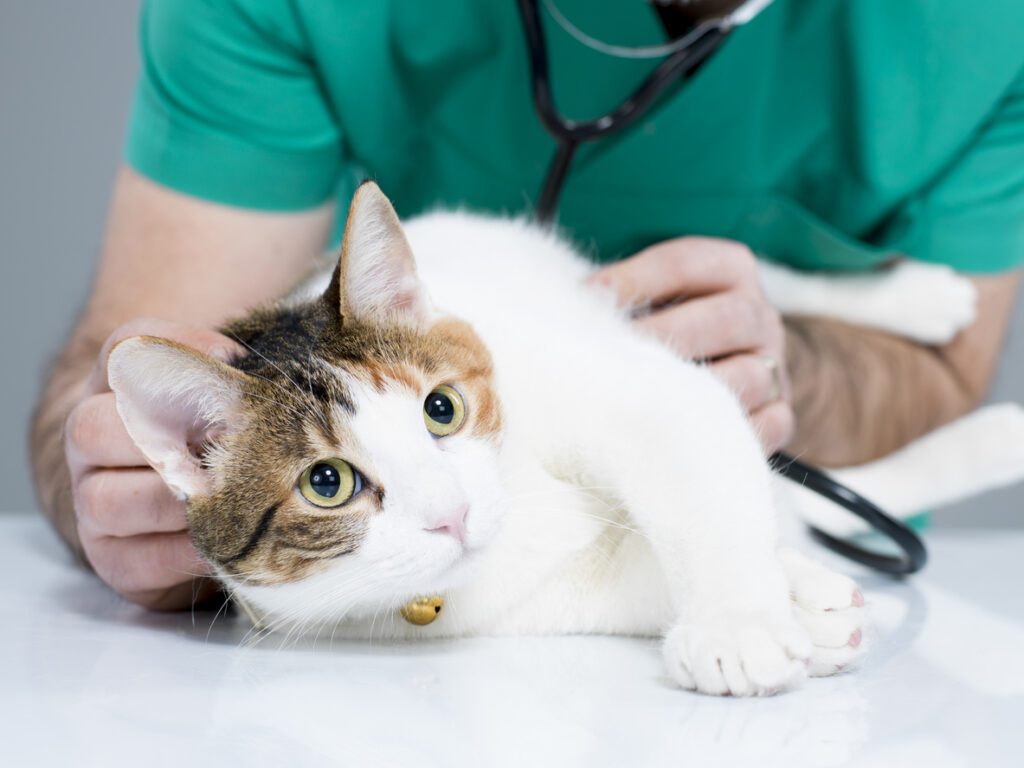Vomiting in cats can be a perplexing issue for many pet owners. While an occasional regurgitation might not sound the alarm bells, frequent or severe episodes can be a cause for concern. Living in a unique environment like Miami, with its tropical climate, also adds its own set of challenges for pet health.
Understanding Cat Vomiting: The Basics
Pets vomit from time to time, and cats are no exception. Whether it’s a reaction to something they ate or a symptom of a more significant underlying condition, vomiting can range from infrequent and harmless to recurring and worrisome.
Common Causes for Feline Vomiting
Miami’s vibrant ecosystem, while beautiful, poses its own set of unique challenges for cats.
Dietary Indiscretions and Food Intolerances
Cats are inquisitive by nature. This sometimes leads them to consume things that aren’t part of their regular diet. Spoiled food, plants that might be toxic to cats, or even some human foods can trigger an upset stomach. Additionally, sudden changes to their diet or food intolerances can also cause digestive distress leading to vomiting.
Ingesting Foreign Objects
The sunny city of Miami offers a variety of temptations for cats, especially if they venture outside. From tiny lizards to various plants, cats might ingest foreign items. Common household objects, like strings from toys, rubber bands, or even pieces of plastic, can get swallowed, leading to potential obstructions in their gastrointestinal tract.
Infections, Parasites, and Diseases
Local infections, internal parasites, or more serious illnesses like kidney disease, pancreatitis, or thyroid problems can be culprits behind your cat’s vomiting. Miami’s warm climate can also be a breeding ground for certain parasites that might affect your cat.
When to Seek Veterinary Help for Your Cat

Recognizing when vomiting transitions from a minor concern to a potential medical emergency is vital for every pet owner.
Recognizing Danger Signs
- Consistency: Vomiting more than once in a day or continued vomiting over several days needs attention.
- Blood Presence: Blood in vomit, whether bright red or resembling coffee grounds, requires immediate veterinary intervention.
- Accompanying Symptoms: If your cat displays other concerning signs like lethargy, diarrhea, or drastic changes in appetite, it’s crucial to get them checked.
- Dehydration Signs: Check for dry gums, sunken eyes, and diminished skin elasticity. Prolonged vomiting can lead to dehydration, which can be dangerous.
Prevention and Precautions
While you can’t always prevent your cat from vomiting, understanding Miami’s unique environment can help you take precautions. Ensure that your home is free from toxic plants and secure garbage bins. If your cat ventures outdoors, regular parasite prevention and checks become essential.
Trust Country Club Animal Hospital for Expert Care
Your cat’s health should never be taken lightly. Country Club Animal Hospital, located in the heart of Miami, FL, offers top-notch care for all your feline concerns. Our team of experienced professionals provides diagnostic services, treatments, and preventative advice tailored to Miami’s unique environment.
For more information, inquiries, or to schedule an appointment, please reach out to us at (305) 663-3300 or use the online form.
Your feline friend deserves the best care available. At Country Club Animal Hospital, we ensure that they receive just that. Don’t delay if your pet is in distress; reach out to us today.
